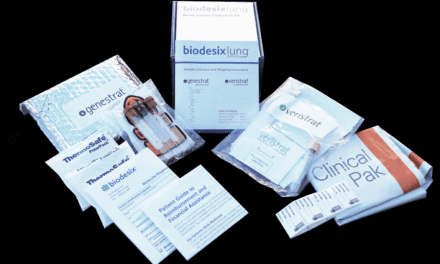Cleveland HeartLab (CHL), a cardiovascular disease management company, has presented new research that demonstrates substantial costs savings for US health plans through the addition of cardiovascular inflammatory testing to standard cholesterol testing.
The CHL study was presented on June 2 at the annual meeting of the International Society for Pharmacoeconomics and Outcomes Research (ISPOR), in Montreal. The study shows that averting mortality and morbidity from myocardial infarction (MI) and ischemic stroke (IS) through the use of routine testing for multitiered cardiovascular risk markers of vascular inflammation can save the US healthcare system at least $180 million—but likely much more. The research was generated in collaboration with a team of expert economists from the Analysis Group, a leading health economics consultancy.
The results of the research suggest that for a commercially insured US health plan with one million members, implementing routine testing with CHL multitiered cardiovascular risk markers—specifically Myeloperoxidase, Lp-Pla2, and hsCRP—can decrease non-fatal MI events by 2,018 and non-fatal IS events by 1,848, resulting in $180.6 million in cost savings over five years.
The poster presentation, “The Economic Impact of Implementing a Multiple Inflammatory Biomarker-Based Approach to Identify, Treat, and Reduce Cardiovascular Risk,” defines an economic model that is the first of its kind to quantify the potential economic and clinical benefits of more accurately stratifying near-term cardiovascular risk through use of multiple inflammatory biomarker tests.
“Traditional methods for assessing and mitigating risk are insufficient and may misclassify an individual’s actual risk of a heart attack and death,” said Marc Penn, MD, PhD, director of research at Summa Cardiovascular Institute, professor of integrative medical sciences at Northeast Ohio Medical University, and chief medical officer of CHL. “Routine inflammation testing helps identify individuals with previously unidentified risk so that steps can be taken to decrease vascular inflammation, improve their state of wellness, and lower their risk of a heart attack and death.”
This position is supported by data from the American Heart Association, which reports that 50% of all heart attacks and strokes occur in individuals with normal cholesterol and that, for approximately 30% of patients with cardiovascular disease, the first sign of disease is death.
“By more accurately assessing an individual’s near-term cardiovascular risk, healthcare providers can deploy resources more strategically,” said Jake Orville, president and CEO of CHL. “The model demonstrates that multi-marker inflammation testing not only can avert predictable CVD events and save lives, it can also help reduce the enormous cost burden of acute heart attack and stroke, which is the single most costly item in the nation’s healthcare budget.”
“We launched Cleveland HeartLab to make innovative inflammation testing a standard component of routine CVD risk assessment to help identify and prevent cardiovascular events in patients who were previously not known to have risk,” Penn added. “We’re very excited to report that the results of this collaboration demonstrate that along with improving outcomes, our approach can lead to a significant decrease in healthcare costs.”
According to the Centers for Disease Control and Prevention, the total costs of cardiovascular diseases in the United States in 2010 exceeded $444 billion. Treatment of these diseases accounts for about $1 of every $6 spent on healthcare in the US. As the US population ages, the economic impact of cardiovascular diseases on the nation’s healthcare system is expected to become even greater.
For more information, visit Cleveland HeartLab.







